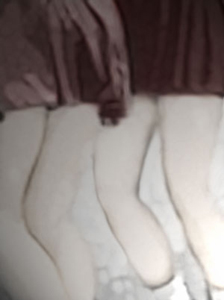One witness at the inquest said Sneddon was brave, another said he was stupid. Hopeful, is how I prefer to think of him. Always hopeful. The Jaguar was new, bought with the cash from a lorry highjacking near Salisbury. It arrived at the humpback bridge doing 90mph and made no attempt to slow down. All four wheels were in the air and the engine was racing when it hit the oak tree on the bend. The Fire Brigade teased Sneddon from the wreck like a cockle from its shell.
He died in the hospital at eight that evening. “Complications,” the doctors said.
I was there by the bed at the last. “My uncle had an unborn baby in a jar,” Sneddon whispered before closing his eyes, cryptic for once in his life. “It looked like an alien.” Twenty years since we’d met and he was gone. I’m not sure he even knew who I was. “I saw you on TV,” I told him, but it was too late.
His sister had called me with news of the accident. She still lives in town. “You might care,” she said. “We don’t.”
I put the phone down and told my wife what I needed to do. She turned away and shook her head. I wanted to explain with the word loyalty, but I couldn’t. Like guilt, loyalty has its own statute of limitations. But someone had to go; someone had to be there. Trust should never be forgotten. I was his witness.
Sneddon was dishonest by profession and an old friend. He robbed his first post office in our final year at school. We were sixteen. He told me about the robbery the week before. It was a story for a hot afternoon, our heads silly with the heat and nothing solid enough around us to matter. We were sitting together at the back of an empty classroom, feet up on the desks. Some girls were playing netball on the court by the gym block and we were watching them through the window. “I’ve got a plastic gun and a Frankenstein mask,” he said. “Toys,” he said, and laughed. I laughed too and then we were silent, the girls’ little skirts kicking up as they passed the ball. I didn’t believe him, but I should have. He never bothered to tell lies. He confronted life with true desire. He saw what he wanted and then took it.
That first robbery only made the local Gazette. But as others followed the national newspapers went with the story. Sneddon changed who he was. Self-belief became luck, certainty magic. To stay ahead of the police he stole cars and hid out with the girls he met. The press named him the “Kiss and Run Robber.” There were sightings up and down the country. Often he was in two places at the same time, walking a dog in Carlisle, buying a paper in Canterbury. It took several weeks for them to catch him.
I watched him on TV on the day of his arrest. It’s strange to see someone you know on the screen. It’s almost as if they’ve crossed over from our world; the real world as we call it. He was handcuffed when they took him from the car to the police station, his hands together as if praying. At the door he turned to the camera, raised his arms and smiled. I smiled back at him and then felt foolish.
Later, I remembered the girls playing netball and I wondered whether any of them had been watching TV like me, not knowing they were part of a moment, part of Sneddon’s story, their legs white in the sun, their voices calling out to one another.



 The core workshop of SmokeLong Fitness is all in writing, so you can take part from anywhere at anytime. We are excited about creating a supportive, consistent and structured environment for flash writers to work on their craft in a community. We are thrilled and proud to say that our workshop participants have won, placed, or been listed in every major flash competition. Community works.
The core workshop of SmokeLong Fitness is all in writing, so you can take part from anywhere at anytime. We are excited about creating a supportive, consistent and structured environment for flash writers to work on their craft in a community. We are thrilled and proud to say that our workshop participants have won, placed, or been listed in every major flash competition. Community works.